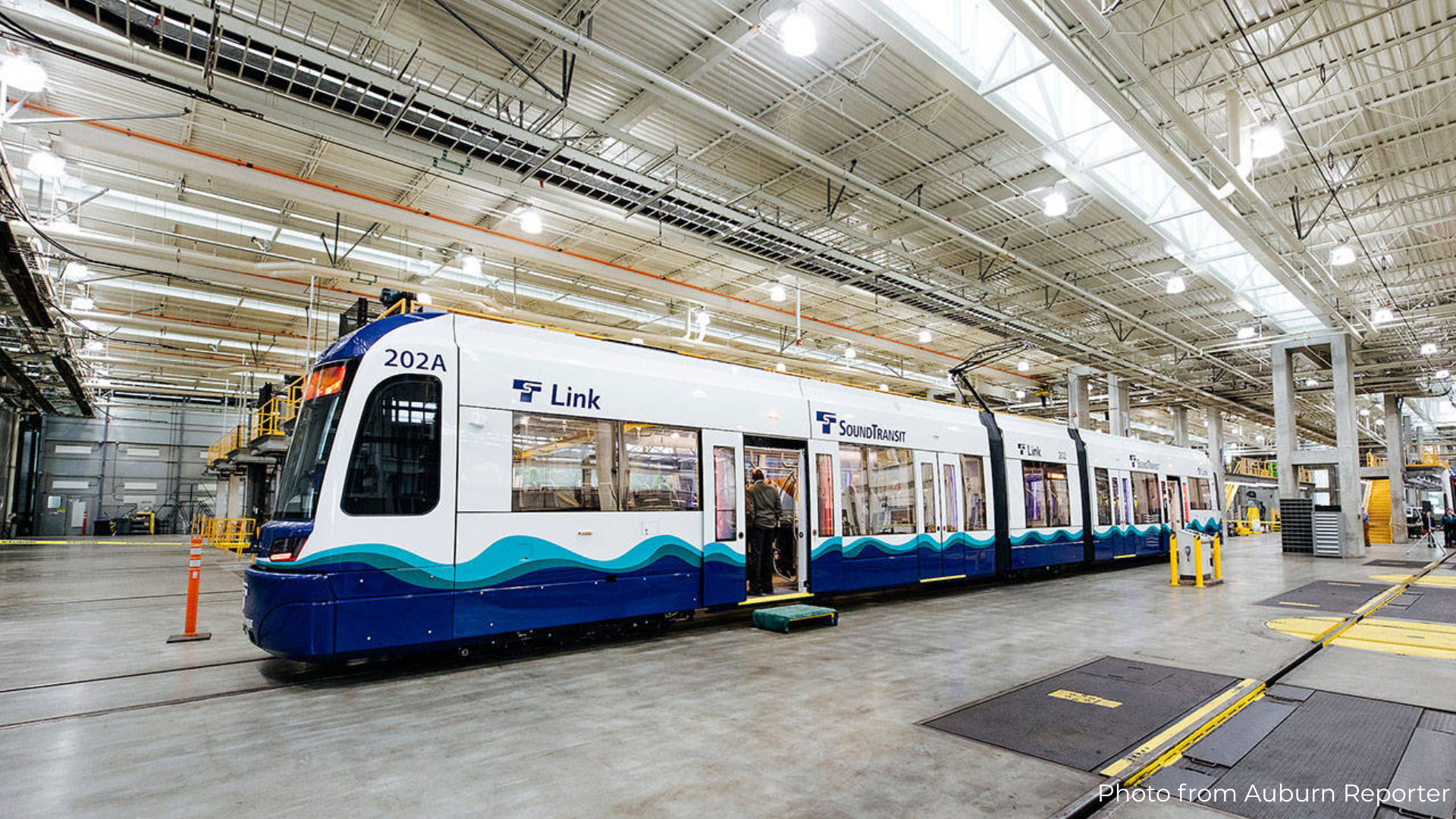Editors note: Highway Robbery is an ongoing series devoted to exposing the abuse of our state transportation system and how it is funded.
Sound Transit officials have long-supported imposing unpopular tolls on drivers who commute on I-405, in order to serve transit. They say they support toll expansion, which was authorized last session, to help manage congestion and facilitate a reliable Bus Rapid Transit (BRT) system on I-405. The nearly $1 billion-dollar bus system that will run from Lynnwood to Burien was included in the Sound Transit 3 tax package that passed in 2016.
Official documents from the agency show that BRT ridership projections are based on two mechanisms that punish drivers: 1) failing toll lanes that no longer have to meet the 45 mph speed requirement and can run as slow as ever; and, shockingly, 2) a mileage tax.
Ridership
Let’s start with ridership. At the low end, officials project 19,200 total daily boardings on BRT by the year 2042, and at the high end – 25,800. The interstate currently serves roughly 900,000 people a day. If we assume no growth in the number of trips on I-405, Sound Transit’s most optimistic ridership projection shows that BRT will serve less than 3% of daily trips on the eastside.

While BRT is a more affordable and flexible option than light rail, these numbers are not encouraging. This is especially true given Sound Transit’s insistence that their BRT system requires the expansion of managed toll lanes on I-405.
Mismanaged toll lanes
The Seattle Times pointed out just last year, “Sound Transit needs the state to ensure its toll lanes flow at 45 mph, both north and south of Bellevue. Otherwise buses will run late, and might fail to entice the targeted 18,000 daily riders.”
Sound Transit CEO Peter Rogoff said, “We would not make this investment, anticipating BRT on I-405, if we did not have managed lanes.” He has also suggested that toll money taken from drivers could be used for building BRT.
Unfortunately, the lanes are quite mismanaged. Washington State Department of Transportation (WSDOT) officials have continued to fail to meet the 45 mph speed metric in state law that was promised to the public. Rather than consider a better alternative, the WSDOT worked with lawmakers to pass Senate Bill 5825 during the 2019 legislative session. The bill authorizes the expansion of the failing lanes, bonds against toll revenue, and nullifies the speed requirement.
The tolling system on I-405 is broken and punitive, made more so by the passage of this bill.
Taxing drivers for every mile they drive
Interestingly, Sound Transit’s high-end projections depend on another scheme that could be used to punish drivers off the road – the Road Usage Charge (RUC). State officials have just finished their year-long pilot and are due to present their final report to the legislature and the federal government in 2020.
Throughout the pilot process, the Washington State Transportation Commission (WSTC) and its friends have argued time and time again that a RUC will simply be a replacement for the gas tax. The Washington Policy Center has argued repeatedly that a true user fee that charges drivers per mile, truly replacing the gas tax, and pays for roads alone is unlikely to see the light of day in Washington State.
We have pointed to powerful public agencies, like the Puget Sound Regional Council and Sound Transit, who do not appear to support a user fee to fund roads, but rather a mileage tax that can be leveraged to support transit. The above chart with Sound Transit’s ridership projections demonstrates that to some degree.
Unsurprisingly, it’s in the tiny fine print below the chart:
“…the ‘high’ forecast assumes more development as well as a per-mile fee for vehicles, which leads to more transit use.”
This is a remarkable admission. Sound Transit clearly identifies the second punitive mechanism that drives their “high” BRT ridership projections – a per-mile fee.
Although Sound Transit isn’t explicit in how a per-mile fee will lead to more transit use, it may be that they reason a Road Usage Charge will fluctuate by time of day and/or location, imposing a higher rate on those workers and their families who do not have flexibility in when they get to work each day. This is hardly "just a gas tax replacement."
We will continue to track this transit project, as well as the I-405 toll expansion, and the developing proposal for a state Road Usage Charge. It will be interesting to see how transportation officials justify and bind the three together.






